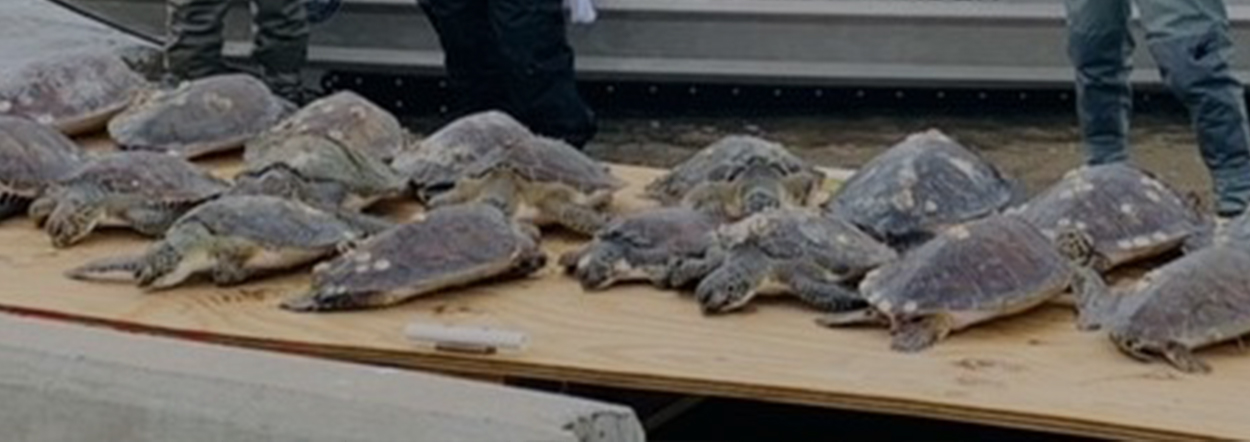Texas Game Wardens were on the frontlines of the herculean effort to rescue cold-stunned sea turtles up and down the coast during the February deep freeze that engulfed the state.
According to the Sea Turtle Stranding and Salvage Network (STSSN), more than 12,000 turtles were affected. That number is triple the number rescued during the winter of 2017-2018, which had been the largest cold stunning event since STSSN was established in 1980.
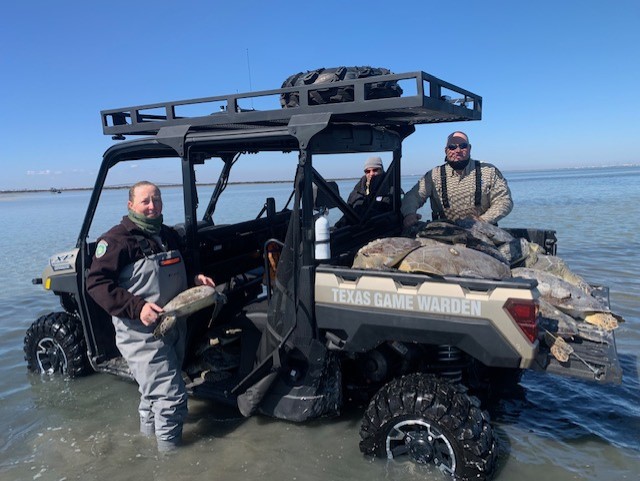
Texas Parks and Wildlife Department (TPWD) personnel joined hundreds of others who pitched in to help.
“We knew it was coming and we were ready,” said Texas Game Warden Major Ellis Powell, who heads Region 8, which includes the lower Texas Coast. “It was all hands on deck. We worked shoulder to shoulder with our colleagues in the Coastal Fisheries Division. There were a lot of cold hands and cold fingers, but we all knew it was coming and we were as ready as we could be.”
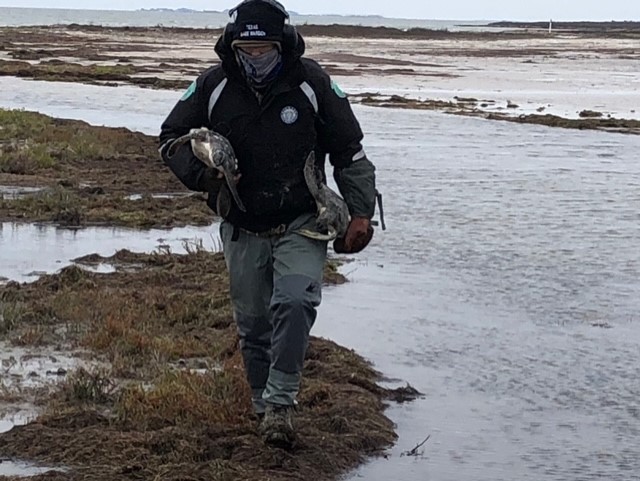
Texas Game Wardens had access to some equipment this time that they haven’t had in the past. Two specially rigged airboat trailers and a Utility Terrain Vehicle provided through Texas Parks and Wildlife Foundation’s (TPWF) Gear Up for Game Wardens program were critical elements of the Texas Game Warden response.
“We were able to move airboats around easily and for that reason, we got to a lot more turtles than we would have otherwise,” said Texas Game Warden Captain Ben Baker. “Thanks to the coordinated effort from many other organizations, we were able to pull to shore when the airboat was full with about 40 sea turtles, where we would hand them off to others for transport to warming centers. Then we would turn right back around to pick up more.”
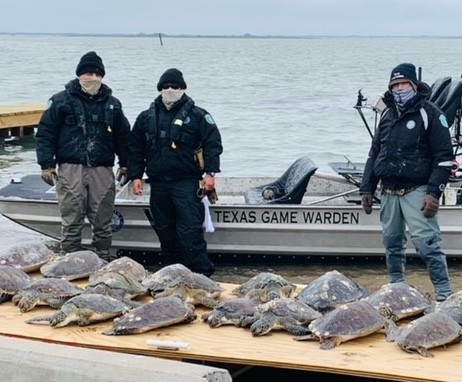
It was tough work in extreme conditions. Once a stunned turtle was spotted in the water, Texas Game Wardens waded through freezing water to pull the heavy turtles into the boat. They repeated the process hundreds of times. Texas Game Wardens also patrolled hard-to-reach areas onshore with a UTV, also provided through Gear Up for Game Wardens.
“We found a lot of turtles on the shoreline that we could just pick up in the UTV,” said Baker. “The UTV also allowed us to transport rescued turtles from areas that conventional vehicles couldn’t reach, and that allowed much quicker transport to the warming centers.”
For Captain Baker and the men and women he serves with, the work is deeply satisfying.
“Texas Game Wardens do what we do because we love the resource,” said Baker. “It’s an opportunity for us to give back in a hands-on kind of way. It gets us out of the law enforcement realm to focus on direct conservation. We know that if we weren’t out there along with all the others who helped, a lot of these turtles wouldn’t have made it.”
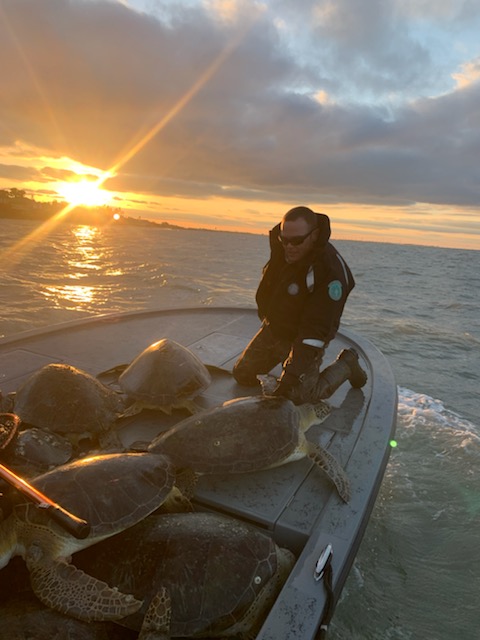
Baker and Powell are grateful to the generous donors who contributed to TPWF’s Gear Up for Game Wardens program to make the specialty equipment possible. TPWD game wardens and coastal fisheries staff rescued more than one thousand turtles, and Major Powell estimates the number would have been half that without the equipment provided through Gear Up for Game Wardens.
“You can solve a lot of problems with money and people, but that’s a finite number,” said Powell. “To have the citizens of the state of Texas step up and get behind our game wardens to provide these specialty tools we wouldn’t otherwise have is wonderful. Whether it’s search and rescue of people or search and rescue of turtles, this equipment is making a big difference in how we can meet our mission.”

